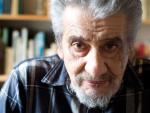William J. Bennetta dies
10.09.2018
 The textbook watchdog William J. Bennetta died on September 26, 2018, at the age of 79, according to a notice from the Cremation Society of Virginia. Bennetta was known for founding The Textbook League and editing its newsletter The Textbook Letter. Described by Mother Jones in 2011 as "a one-man nonprofit that has dissected schoolbooks for factual errors, from typos in the periodic table of elements to flawed explanations of how airplanes fly," the League operated from 1989 to 2011.
The textbook watchdog William J. Bennetta died on September 26, 2018, at the age of 79, according to a notice from the Cremation Society of Virginia. Bennetta was known for founding The Textbook League and editing its newsletter The Textbook Letter. Described by Mother Jones in 2011 as "a one-man nonprofit that has dissected schoolbooks for factual errors, from typos in the periodic table of elements to flawed explanations of how airplanes fly," the League operated from 1989 to 2011.
Bennetta was particularly exercised by textbooks that downplayed evolution. Writing in Reports of the NCSE in 1999, for example, he described biology textbooks of the 1970s and 1980s as offering "a mangled form of 'biology' that reflected decades of pressure from certain religious fundamentalist groups." Even in the 1990s, he added, "the evolutionary 'information'" provided in textbooks "is often bogus ... erroneous, incomprehensible, and self-contradictory." But he was also concerned about broader trends in attacks against the integrity of science education. His 1988 article, "The Rise and Fall of the Louisiana Creationism Law," published in the Natural History Museum of Los Angeles County's magazine Terra, was remarkably prescient about the direction of creationism after the Supreme Court's decision in Edwards v. Aguillard. Bennetta even cited Biology and Origins, the manuscript eventually published as Of Pandas and People, the "intelligent design" textbook at the center of Kitzmiller v. Dover.
Bennetta was born in Port Chester, New York, on November 10, 1938. He earned a bachelor's degree in chemical engineering from Rensselaer Polytechnic Institute in 1960 and a master's degree in journalism from Columbia University in 1963, where he wrote a thesis on "The New Eugenics." He worked as a technical writer and editor, initially for McGraw-Hill and then mainly on a freelance basis, and as a scientific consultant for the bulk of his career. He was a Fellow of the California Academy of Sciences.
No comments:
Post a Comment
Note: Only a member of this blog may post a comment.